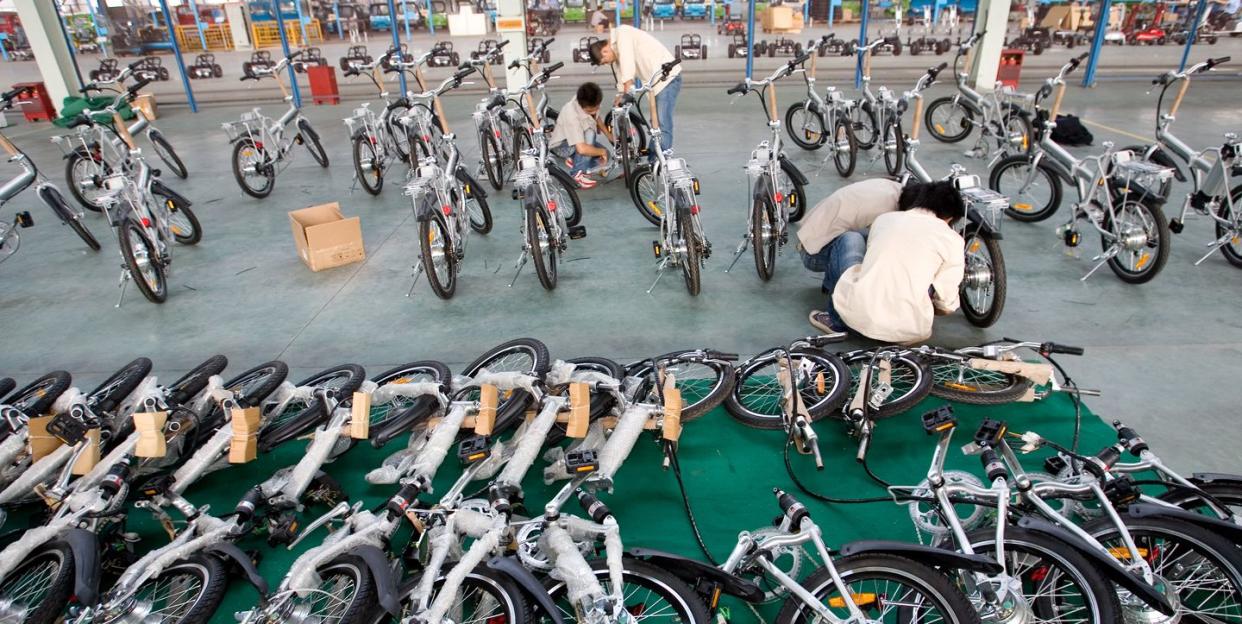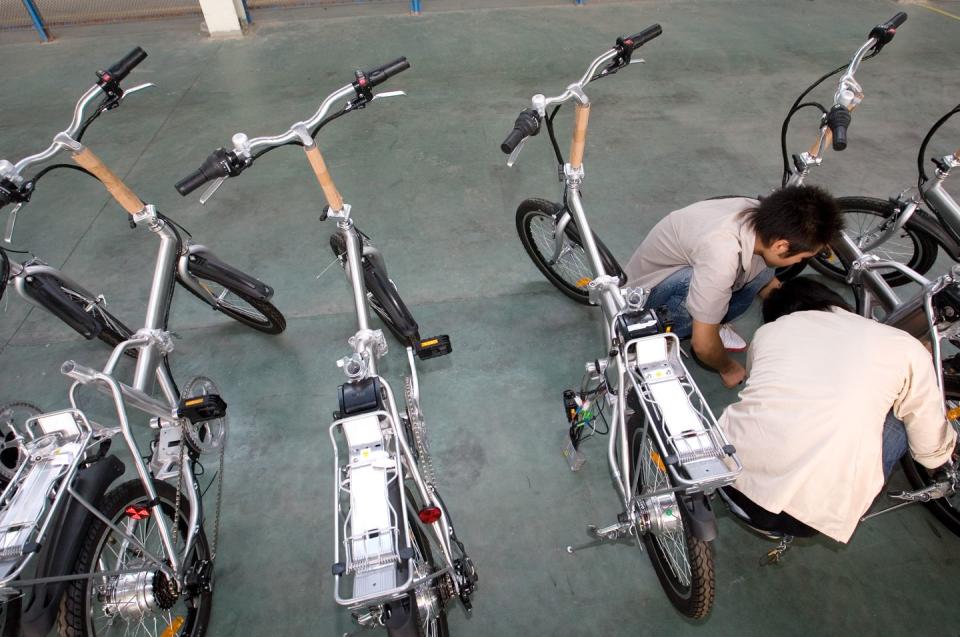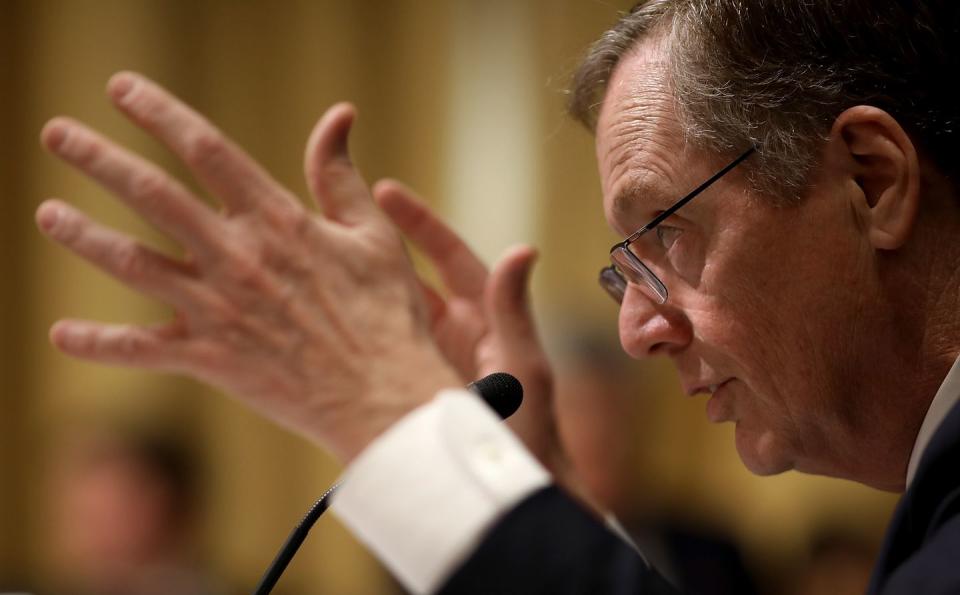Will the Trump Tariffs Mean Price Hikes for E-Bikes?

President Trump’s trade war has hit the bicycle industry, and the growing e-bike market could be among its first casualties.
On August 23, the US government will begin collecting a 25 percent tariff on $50 billion worth of Chinese-made goods. Some items, including GPS units for bikes, already had their tariffs go into effect in July. But a second round of tariffs, which targets both e-bikes and their electric motors (among many other items), has the entire industry mobilizing.
After several false starts, the e-bike market exploded last year. Sales exceeded $77 million, nearly double those of 2016. It’s the fastest-growing corner of the bike industry, and many insiders feel Trump’s trade war could kill it in its relative infancy.
“We will be working closely with our allies in the bike industry to make the case against these tariffs,” said Katy Hartnett, government relations director for the advocacy group People for Bikes. “This will take an all-hands-on-deck approach from the industry.”
Out of so many products, why single out e-bikes? Emily Davis, a spokesperson for the US Trade Representative (USTR), didn’t give a specific answer, but said the list was compiled based on “extensive interagency analysis, a thorough examination of comments and testimony from interested parties, and whether an alternative country source is available.”
Matt Moore, chair of the Bicycle Product Suppliers Association’s legal committee and general counsel at Quality Bicycle Products, said e-bikes are likely an unintended casualty of the trade war, falling into the electric motorcycle category. “E-bikes are a relatively small percentage of the products under that code,” he said.
Moore suggested the tariff was originally meant to protect Harley Davidson’s proposed LiveWire electric motorcycle, slated to hit the market next summer. (Ironically, the Milwaukee-based company was hit hard by other tariffs, and earned Trump’s ire after speaking out against them.)

Companies can request that specific products be excluded from the tariffs, Davis said, and People for Bikes plans to file for an industry-wide exemption. However, the USTR is reportedly working through a massive backlog of similar requests, and an exemption approval isn’t guaranteed. The filing deadline for exemptions is October 9.
“We think we [have] a good case as to why it doesn’t make sense to apply this tariff to e-bikes,” said Alex Logemann, a policy director at People for Bikes. “But it’s pretty difficult to determine just how lenient the USTR will be as they review these applications.”
Charlie Revard, owner of The Bike Line, an Indianapolis bike shop, called the tariffs “chaotic” but isn’t panicking yet. Many large bike companies have worldwide supply chains and can switch production to factories outside China, even if it takes time. Meanwhile, the average e-bike buyer coming into his shop has money to spend-and is willing to pay a little extra.
But how much extra? Moore said it’s doubtful that prices on Chinese e-bikes will rise just 25 percent. Depending on the margins for importers and retailers, he said, the cost of an average e-bike could rise by as much as 75 percent.
Furthermore, the USTR is considering a 25 percent tariff across the board on Chinese-made bicycle frames, helmets, clothes, and components. People for Bikes and other groups estimate that the bike industry would take a $250 million hit.
A hearing for that tariff is slated for August 20. If approved, it would have “serious and harmful effect to our industry,” Pat Cunnane, CEO of Advanced Sports Enterprises, said during his recent USTR testimony.
“The truth is, very few bicycles are manufactured in the United States,” he said. “In fact, nearly 94 percent of complete bicycles are imported from China, including nearly 97 percent of children’s bicycles… We don’t have, and won’t have, the domestic manufacturing base or domestic supply chain to reposition our industry.”

One industry executive, who wished to remain anonymous to protect his business partnerships, said higher prices for lower-end brands like Huffy, Pacific, and Schwinn could put affordable bikes out of reach for low-income buyers. A tariff on components and helmets would also mean fewer repairs and fewer people with proper safety equipment.
Logemann said every bike company would feel effects, as “everyone gets at least something from China.” The impact would likely trickle down to bike shops, he said, leading to higher prices, fewer sales, and fewer jobs.
Not every company is sweating the news, however. “These tariffs will have a minimal effect on our drivetrain, brakes, and suspension [products], as we no longer manufacture in China,” said Stan Day, president of SRAM. “To the extent the tariffs are imposed on carbon rims or wheels exported to the US, it is probably a benefit to our Indianapolis Zipp wheel production.”
But the USTR also recently imposed a tariff on steel and aluminum tubing from the European Union, Mexico, Canada, and China, which could severely affect custom bike builders. Tim O’Donnell, who builds bikes under the name Shamrock Cycles, is keeping a close eye on the market.
“The impact hasn’t really been felt yet, as most of my suppliers have tons of tubes in stock pre-tariff,” O’Donnell said. “I would assume prices will rise, though, but to what extent is yet to be known.”
Companies like Wheels Manufacturing and Paul Components have already seen a jump in material prices, Bicycle Retailer & Industry News reported in June. Dave Batka, owner of Wheels, told BRAIN that he anticipates the retail cost of an entry-level bottom bracket (the bracket that connects the crankset to the bicycle) to rise by about $5.
Several businesses that import steel-albeit none in the bike industry-have sued the Trump administration, calling the tariffs unconstitutional because they delegate trade powers from the legislative branch to the executive branch. It’s not known when that case might be heard.
('You Might Also Like',)

